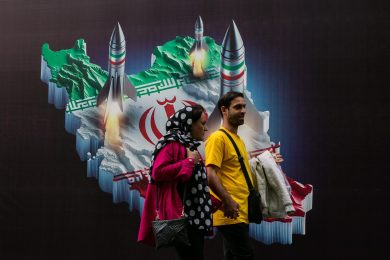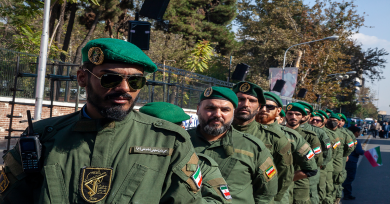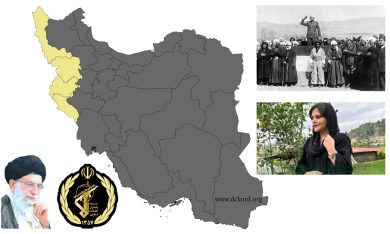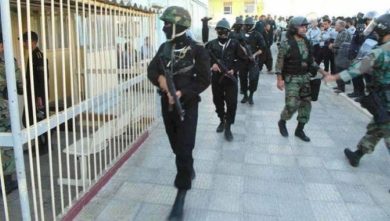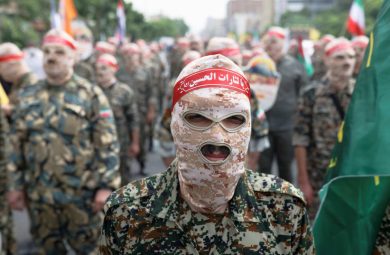The Islamic Revolutionary Guard Corps (IRGC) has long been the enforcer of systemic repression in Iran, and one of its primary targets is women. The IRGC’s war on women is not just about enforcing compulsory hijab laws; it is about controlling voices, crushing activism, and silencing change. Women in Iran have been at the forefront of protests, demanding basic human rights, yet they are met with violence, imprisonment, and suppression.
From arrests and torture to digital censorship and surveillance, the IRGC employs brutal tactics to eliminate dissent and maintain its patriarchal stronghold. However, Iranian women remain defiant, using every means possible to challenge oppression, from street protests to social media activism.
This update explores:
• The IRGC’s systematic crackdown on women.
• Key cases of women activists, journalists, and protestors facing repression.
• The role of the international community in fighting back against IRGC oppression.
1. The IRGC’s Systematic Crackdown on Women
A. The Targeting of Women in Protests
Since the Mahsa Amini protests of 2022, Iranian women have led nationwide demonstrations, calling for an end to gender apartheid. In response, the IRGC has escalated its violent repression, using:
• Live ammunition and beatings against female protestors.
• Mass arrests and long-term imprisonment for those who participate.
• Forced confessions broadcast on state TV to intimidate activists.
Key Example:
• Armita Geravand, a 16-year-old girl, was fatally attacked by the morality police for not wearing a hijab, proving that the regime’s gender oppression is lethal.
B. Women Political Prisoners: Silencing Change-Makers
The IRGC controls Iran’s most notorious prisons, where women activists, journalists, and lawyers are detained under inhumane conditions.
Notable Cases:
• Narges Mohammadi (Nobel Laureate, human rights activist) – Repeatedly imprisoned for opposing the death penalty and advocating for women’s rights.
• Nasrin Sotoudeh (Lawyer) – Sentenced to 38 years in prison and 148 lashes for defending women who refused to wear hijabs.
• Sepideh Gholian (Journalist) – Imprisoned and tortured for reporting on labor rights and protests.
The IRGC uses solitary confinement, sexual abuse, and psychological torture to break women’s resistance, but these women continue their fight from behind bars.
C. Digital Repression: Controlling Women’s Voices Online
The IRGC extends its war on women to cyberspace, attempting to erase resistance through:
• Censorship of social media platforms like Instagram, Twitter, and Telegram.
• Surveillance and cyberattacks on women activists inside and outside Iran.
• Troll armies and propaganda to spread misinformation and discredit activists.
Case Study: Masih Alinejad
• The IRGC attempted to kidnap and later assassinate exiled journalist Masih Alinejad for running the #MyStealthyFreedom campaign, which encourages Iranian women to remove their hijabs in defiance of the regime.
Despite government crackdowns, digital resistance continues, showing that the IRGC cannot silence Iranian women’s voices permanently.
2. The Global Response and the Fight Against the IRGC
A. International Condemnation and Sanctions
The IRGC’s gender-based repression has led to:
• UN investigations into human rights abuses.
• US, UK, and EU sanctions on IRGC officials responsible for crushing protests and women’s rights activists.
• Calls to designate the IRGC as a terrorist organization to limit its international funding and operations.
However, more action is needed, especially from the European Union, which has yet to fully blacklist the IRGC as a terrorist entity.
B. How the World Can Support Iranian Women
1. Media and Awareness
• Amplify the voices of imprisoned Iranian women to keep international pressure on the regime.
• Support independent Iranian journalists who risk their lives to expose IRGC oppression.
2. Tech and Digital Resistance
• Provide VPN access and encrypted tools to bypass the regime’s digital censorship.
• Support social media campaigns that expose the IRGC’s crimes against women.
3. Legal and Political Actions
• Blacklist the IRGC globally as a terrorist organization.
• Strengthen sanctions on Iranian officials responsible for the arrests and executions of women activists.
• Support Iranian asylum seekers, especially women activists fleeing persecution.
3. The Women Who Refuse to Be Silenced
A. Women Inside Iran
Despite the IRGC’s brutal tactics, women inside Iran continue to:
• Remove their hijabs publicly as a symbol of defiance.
• Organize underground networks to support political prisoners.
• Use encrypted apps to share evidence of human rights violations with the world.
B. Women in the Iranian Diaspora
Iranian women abroad play a crucial role in exposing the IRGC’s oppression, including:
• Activists like Masih Alinejad, who push for international action against Iran.
• Organizations documenting human rights abuses, ensuring the world does not forget.
• Political lobbying to push for tougher measures against the IRGC.
4. The Future of Iran’s Women-Led Resistance
The IRGC’s war on women is a battle it cannot win because Iranian women refuse to be silenced. Every protest, act of defiance, and global solidarity campaign pushes the regime closer to collapse.
The world must act now. The international community has a moral and strategic responsibility to stand with Iranian women, ensuring:
✔ The IRGC is held accountable for its crimes.
✔ Women’s voices are amplified, not erased.
✔ The fight for a free Iran continues.
Join Our Newsletter!
Stay informed with the latest updates, news, and ways to take action in the fight for justice and global security. Sign up now to get updates delivered straight to your inbox!

